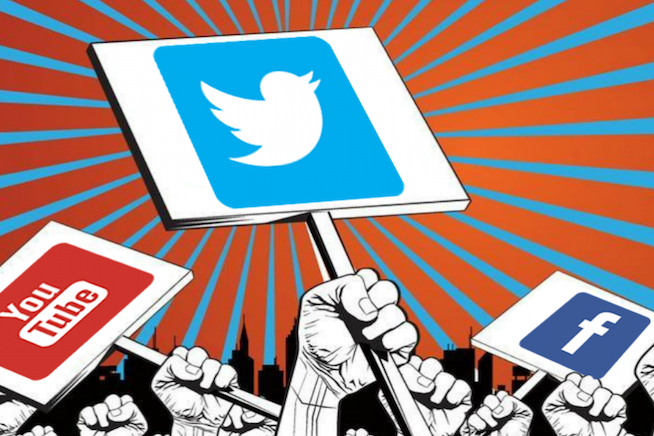
Mindfulness in the workplace is a growing trend, and for good reason! It can help you get more done, feel less stressed out, and even boost your creativity. But how does it actually work? Well, it all starts with paying attention.
If you’re like most people, you probably spend a lot of time thinking about everything but what you’re doing right now—your mind might drift off to old memories or future worries. That’s okay! We all do it sometimes. But when it happens often enough that it feels like a habit? That’s when mindfulness comes in handy.
Mindfulness helps us stay focused on what we’re doing right now by keeping our attention open and receptive to whatever comes next—whether that’s a task we need to complete or something new that pops up unexpectedly. We learn how to observe our thoughts without getting caught up in them or getting too attached to them—and that helps us be less stressed about things that don’t matter so much anyway.
Here’s how mindfulness can contribute to enhancing productivity and well-being in the workplace:
Improved Focus and Concentration

Mindfulness practices train individuals to direct their attention to the present moment. This heightened focus can lead to improved concentration on tasks, reducing the likelihood of distractions and multitasking, which can negatively impact productivity.
When you’re focused on the task at hand, you’re less likely to be distracted by irrelevant thoughts and more likely to stay focused on completing your work in a timely manner. Maintaining a state of mindfulness is not only good for your productivity at work—it’s also good for your mental health. Mindfulness helps reduce stress and anxiety, both of which can have a negative impact on your ability to focus and concentrate.
Emotional Regulation
Mindfulness is a practice that can help individuals develop emotional intelligence and regulation skills. This enables employees to manage their emotions, respond thoughtfully to challenges, and maintain a positive and resilient attitude, even in high-pressure situations.
Mindfulness helps employees make better decisions by allowing them to process information more clearly and thoroughly. It also helps them develop strategies for solving problems, making it easier for them to make decisions that are beneficial to both themselves and the company they work for.
In addition, mindfulness improves self-awareness by helping employees recognize which emotions are influencing their current behaviors so they can take steps toward changing those behaviors if necessary. This makes it easier for them to handle stressors in their personal lives without taking out their frustrations on coworkers or customers through negative behaviors such as gossiping or complaining about work conditions without offering solutions for improvement.
Work-Life Balance
We all want to be happy, and the best way to achieve that is by balancing your work with your personal life. When you’re fully present in both areas, you can enjoy greater well-being and reduce burnout.
This is where mindfulness comes in! When we practice mindfulness at work, we focus on our tasks without letting distractions or stress interfere with our productivity. We also become more aware of how our emotions are impacting our performance and learning how to manage them more effectively.
When we practice mindfulness outside of work, we become more present in our relationships with others and in the world around us. This allows us to make better decisions about when it’s time to rest or recharge so that we can return to work refreshed and ready to tackle new challenges!
Resilience
Mindfulness can enhance resilience by teaching employees to accept and adapt to change, setbacks, and challenges. This adaptability is crucial for maintaining productivity and well-being in rapidly changing work environments. In a fast-paced environment where the ground is constantly shifting beneath your feet, it can be hard to stay on top of things. You might find yourself getting bogged down by daily tasks or distracted by distractions that pop up unexpectedly.
Mindfulness can help you focus on what matters most: your work. It teaches you how to accept whatever comes your way so that when something does go wrong (and it will), you’re prepared to handle it with grace instead of letting it get under your skin and ruin everything else.
Leadership Development
Mindful leaders often exhibit qualities such as empathy, active listening, and the ability to remain composed under pressure. These attributes contribute to effective leadership and can positively impact the entire organization.

An effective leader is one who can inspire confidence and motivate others to achieve great things. They know how to get the job done in a way that makes everyone feel like their voice matters and that they’re valued for their contributions. Mindfulness training can help you develop these qualities so you can become a more effective leader. When you’re better at being mindful of your thoughts and feelings, it allows you more control over how you respond to situations that arise at work or home.
To incorporate mindfulness into the workplace, organizations can offer mindfulness training sessions, create designated spaces for meditation or relaxation, encourage short mindfulness breaks throughout the day, and provide resources such as apps or guides for employees to practice mindfulness on their own.
It’s important to note that while mindfulness can offer numerous benefits, it’s not a one-size-fits-all solution, and its effectiveness can vary from person to person. Organizations should approach its implementation with a clear understanding of their employees’ needs and preferences.
RUCHI RATHOR Founder & CEO
Payomatix Technologies Pvt. Ltd.
FOUNDER AND INVESTOR | PAYMENTS PROCESSING EXPERT | MERCHANT ACCOUNT SOLUTIONS | WHITE LABELLED PAYMENT GATEWAY | Dreamer, Creator, Achiever, Constantly Evolving
Website Ruchi Rathor: https://ruchirathor.com
Website Healing Heart https://thehealingheart.me/
Instagram https://www.instagram.com/ruchirathor/
LinkedIn https://www.linkedin.com/in/ruchirathor12/
Facebook https://www.facebook.com/ruchi.rathor.magnificient
Tumblr https://www.tumblr.com/blog/ruchirathor-thehealingheart
Medium https://medium.com/@ruchirathor_23436









